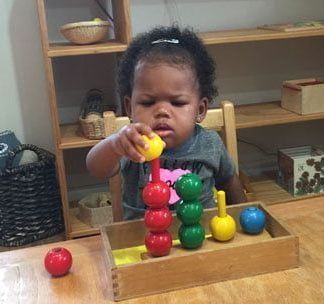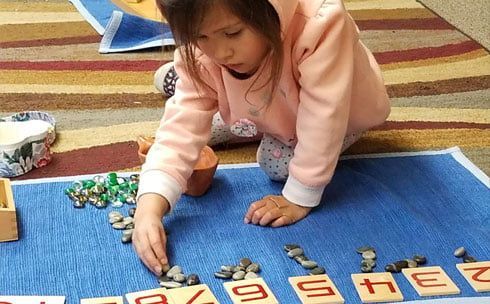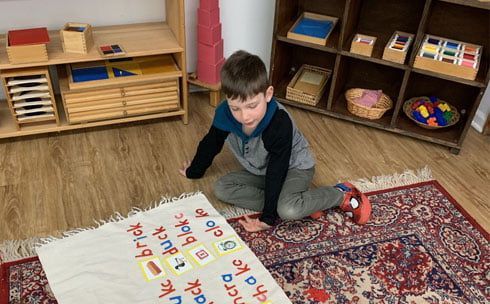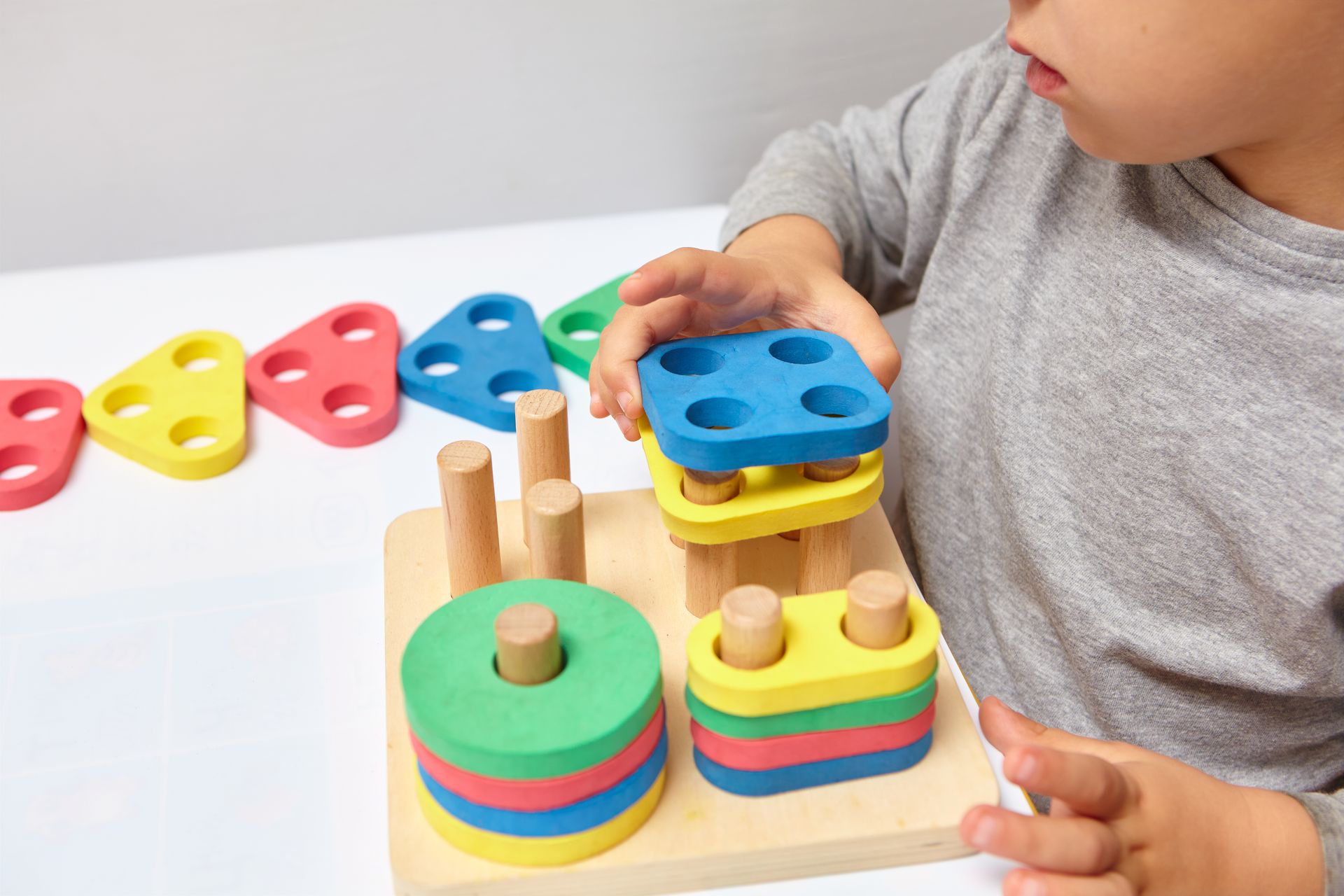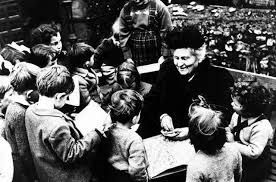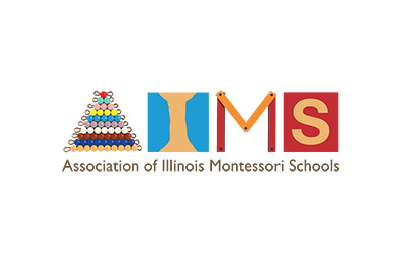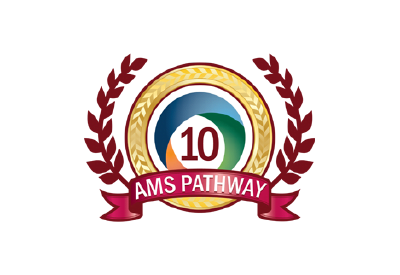Developing Language Through Montessori Sentence Analysis
Share this Article:
Language helps children connect, think, and explore.
At Mansio Montessori of Geneva, it grows naturally through daily routines, meaningful conversation, and hands-on work. The classroom environment encourages curiosity and gives children the space to express themselves with increasing clarity and purpose.
Why Language Development Matters in Early Childhood
From a young age, children are trying to make sense of the world around them. Language gives them the tools to ask questions, share ideas, and build relationships. It’s also a key part of how they develop memory, attention, and early reasoning skills.
When a child begins to understand how words work together in a sentence, they start thinking more clearly and expressing themselves more confidently. These early language experiences build the foundation for reading, writing, and problem-solving later on.
Montessori classrooms are designed to support this growth naturally. Materials are introduced in a specific order, following the child’s development, not a fixed curriculum. This means children learn language in a way that feels meaningful to them, not rushed or forced.
Why Early Language Can Be a Struggle for Children
Language development doesn’t always happen in a predictable way. Some children speak early but have trouble forming clear sentences later. Others take longer to start talking at all. These variations are common, but they can leave parents unsure of what their child needs.
One common challenge is that children often understand more than they can say. Their ideas form faster than their ability to explain them. This gap can lead to frustration or quiet withdrawal, especially in environments that expect quick answers or rote repetition.
Montessori classrooms approach this differently. Instead of correcting mistakes or pushing memorization, the focus stays on helping the child explore language at their own pace. Montessori sentence analysis offers a concrete way for them to engage with words and structure. As they work through real sentences, their confidence grows, and their spoken and written language begins to reflect the complexity of their thoughts.
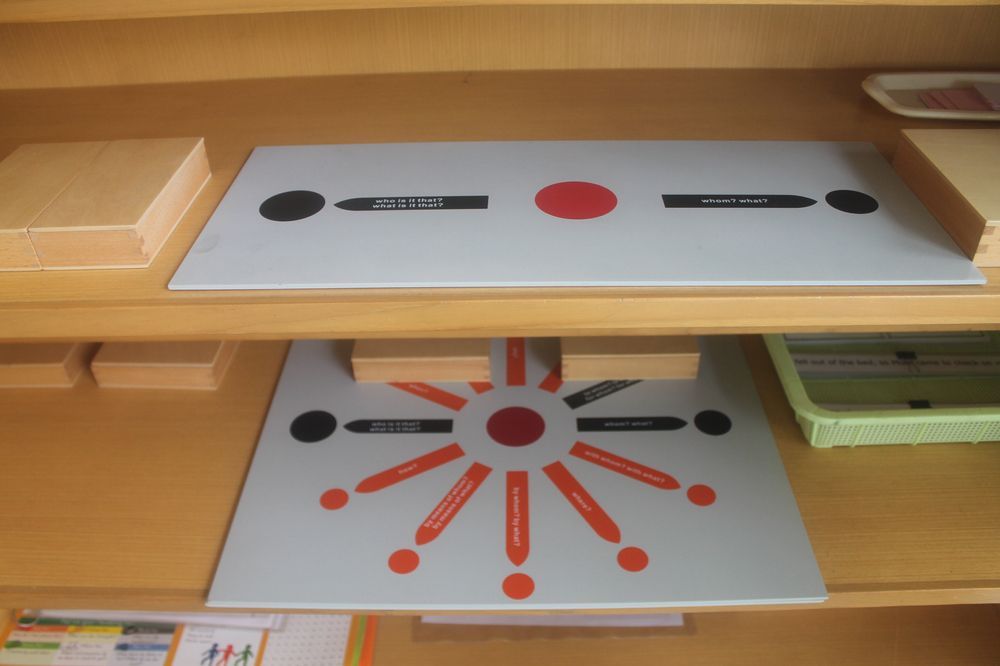
What Is Montessori Sentence Analysis?
Montessori sentence analysis gives children a hands-on way to explore how language is put together. Instead of memorizing grammar rules, they work with materials that help them break down sentences and see how each word functions.
It usually begins with simple, familiar sentences. Children arrange word cards, match symbols to parts of speech, and use arrows or shapes to show how words relate to each other. These materials are tactile and visual, which makes grammar easier to understand.
This approach builds more than just knowledge of sentence structure. It improves focus, logical thinking, and vocabulary. As children work through sentences they care about, they begin to read and write with more accuracy and purpose.
How Montessori Teachers Guide Sentence Analysis
Montessori teachers introduce sentence analysis once a child is ready to explore early reading and writing. Instead of explaining grammar rules, they present materials that allow the child to discover how sentences work.
Children use arrows, cards, and symbols to represent different parts of a sentence. They move these pieces around as they ask questions like “Who is this about?” or “What is happening here?” The materials turn abstract grammar into something concrete and manageable.
The teacher observes closely and steps in only when needed. Gentle questions and quiet guidance help the child think through each part without pressure. Over time, the child becomes more confident in recognizing structure, making connections, and using language with greater clarity.
The Transformation: Benefits for Your Child
Sentence analysis often leads to noticeable changes in how children speak, write, and think. Many begin to show more control over their words, both in conversation and on paper. Word choices become more thoughtful. Sentences grow more complete and organized. Writing becomes something they enjoy rather than avoid.
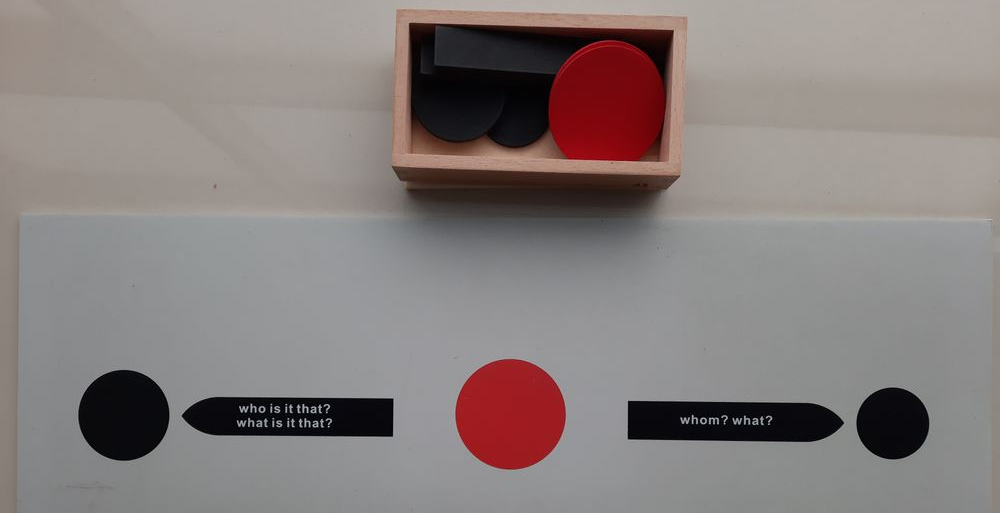
This process also strengthens focus and patience. Children learn to look closely at the structure of a sentence, consider how each word functions, and adjust their thinking when something doesn’t fit. These moments of problem-solving help shape a more confident and independent learner.
As language becomes more familiar, children begin to use it with greater purpose. They ask deeper questions, express more complex ideas, and listen more closely to others. These shifts often unfold gradually, but they reflect lasting growth that reaches far beyond language work alone.
Montessori Sentence Analysis at Mansio Montessori of Geneva
At Mansio Montessori of Geneva, sentence analysis is introduced when a child shows readiness through early reading and an interest in how language works. Teachers observe closely and choose the right moment to offer the first lesson.
Children begin with short, familiar sentences. Using word cards and symbols, they identify the subject and verb, then look more closely at how other words function. Each lesson is designed to be clear, hands-on, and engaging.
As skills develop, the work becomes more advanced. A child who once explored simple phrases may later analyze compound structures or identify modifiers, prepositions, and conjunctions. These lessons build gradually, allowing plenty of time for practice and reflection.
The
three-year classroom cycle at Mansio gives children multiple opportunities to return to sentence analysis with a fresh perspective. Each stage adds to their understanding and strengthens their ability to use language with purpose and precision. Through this work, they also build focus, independence, and confidence that carry into all areas of learning.
Next Steps to Support Your Child’s Language Growth
Strong language skills begin at home through reading, conversation, and time to think and speak freely. If your child is asking questions about words or showing interest in reading and writing, it may be the right time for something more.
At Mansio Montessori of Geneva, children explore language in a way that matches their stage of development. Sentence analysis is just one part of a thoughtful, hands-on approach that helps each child grow into a confident communicator.
To learn more,
schedule a visit and see how Montessori language work
comes to life in our classrooms.
